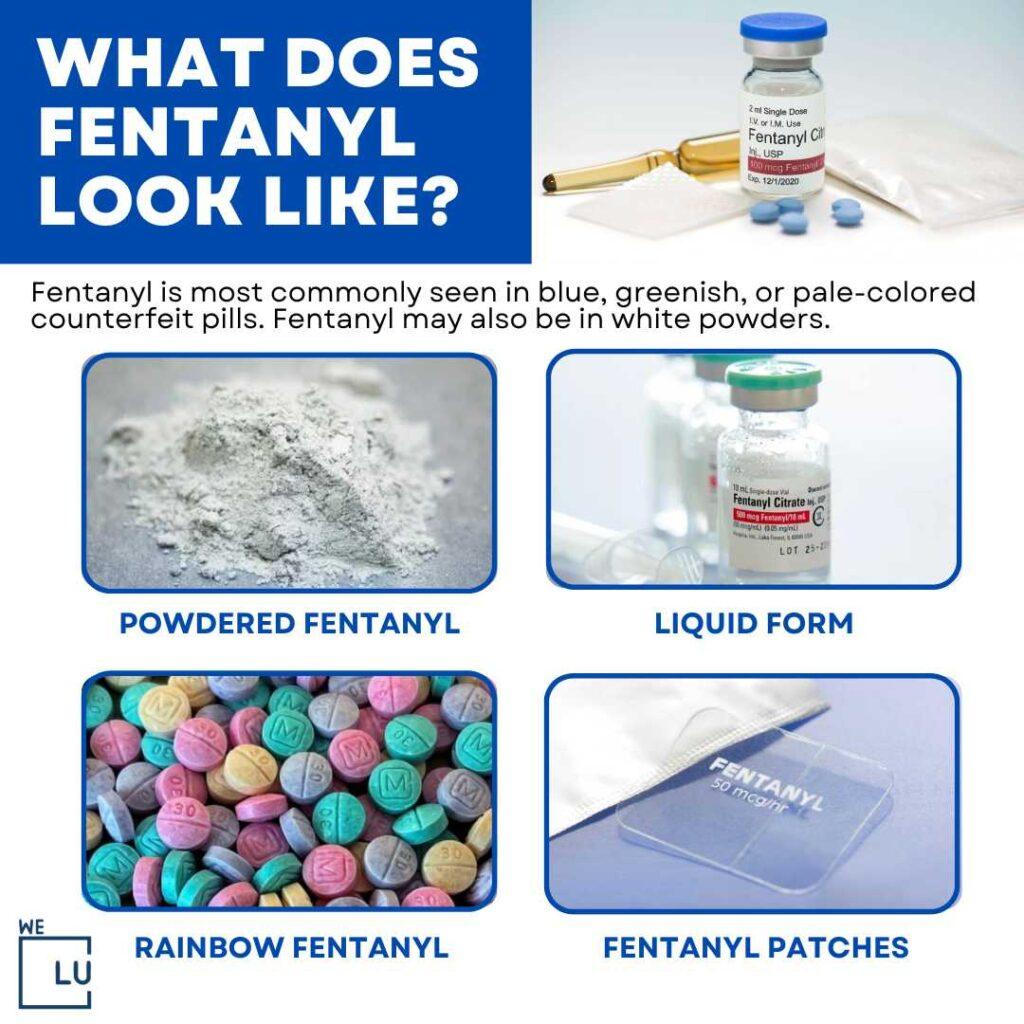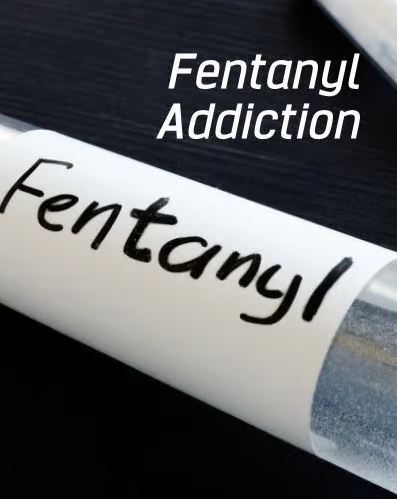What Are Carfentanil Vs Fentanyl?
Carfentanil
Carfentanil is an ultra-potent synthetic opioid classified as a fentanyl analog. Developed initially as a veterinary sedative for large animals, such as elephants, it is estimated to be approximately 100 times more potent than Fentanyl and thousands of times more potent than morphine. Due to its extreme potency, Carfentanil is not intended for human use and is not approved for medical treatment. Even minuscule amounts of Carfentanil can lead to rapid and severe respiratory depression, often resulting in fatal overdoses.
In recent years, Carfentanil has gained notoriety in the context of the opioid epidemic. Illicitly produced and distributed Carfentanil has been found mixed with other drugs, such as heroin, cocaine, and counterfeit prescription pills. This dangerous practice significantly increases the risk of unintentional overdoses and has posed substantial challenges for law enforcement, healthcare professionals, and addiction treatment providers.
Fentanyl
Fentanyl is a synthetic opioid that is also highly potent, albeit less so than Carfentanil. It is commonly used for medical purposes, primarily to manage severe pain, especially in surgery or cancer. Fentanyl’s potency is roughly 50 to 100 times greater than that of morphine. It binds to the body’s opioid receptors, leading to pain relief and, in some cases, euphoria.
Like Carfentanil, illicitly manufactured Fentanyl has contributed significantly to the opioid crisis. It is frequently mixed with other drugs, often without the user’s knowledge, leading to a heightened risk of overdose. Because of its potency, Fentanyl-related overdoses can occur rapidly and may require higher doses of opioid reversal agents, such as naloxone, for effective treatment.
Here’s a comparative table to highlight the differences between Carfentanil and Fentanyl:
| Aspect | Carfentanil | Fentanyl |
|---|---|---|
| Potency | Extremely potent (100x more than Fentanyl) | Highly potent (50-100x more than morphine) |
| Medical Use | Veterinary sedative for large animals | Medical pain management |
| Human Use | Not approved for human use | Approved for medical use |
| Illicit Distribution | Found in the illicit drug market | Joint, increases overdose risk |
| Overdose Risk | Extremely high risk of fatal overdose | High risk of fatal overdose |
| Mixing with Other Drugs | Joint, increases overdose risk | Joint increases overdose risk |
| Legal Status | Classified as a controlled substance | Classified as a controlled substance |
In conclusion, Carfentanil and Fentanyl are synthetic opioids with exceptional potency, and while Fentanyl is used medically, Carfentanil’s potency renders it extremely dangerous for human use. Both substances have played significant roles in the opioid epidemic and underscore the urgent need for public health interventions and comprehensive addiction treatment strategies.
How Much Stronger Is Carfentanil Than Fentanyl?
Carfentanil is estimated to be approximately 100 times stronger than fentanyl. Carfentanil is roughly 100 times more potent than fentanyl regarding its opioid effects. Both carfentanil and fentanyl are highly potent opioids, with fentanyl being around 50 to 100 times more potent than morphine. However, carfentanil takes potency even higher, making it one of the most potent opioids known.
Due to the extreme potency of carfentanil, even the tiniest amounts can lead to severe respiratory depression and overdose, making it extremely dangerous for human use. Carfentanil is not intended for medical use in humans and is primarily used as a tranquilizer for large animals. Its use or presence in the illicit drug market poses an exceptionally high risk of fatal overdoses and other health complications.

Skip To:
Learn More:
- How Does Fentanyl Make You Feel, Does Fentanyl Get You High & How Long Does Fentanyl High Last?
- What is the Fentanyl Half Life & How Long Does Fentanyl Last?
- How Long Does Fentanyl Stay In Urine? Fentanyl Urine Testing
- Why Is Fentanyl So Dangerous? Dangers Of Fentanyl & How Much Fentanyl Is Dangerous?
- How Is Fentanyl Made? Fentanyl Facts
- How Long Does Fentanyl Stay In Your System, Urine, Blood, Salvia & Hair? Fentanyl Drug Test Duration Chart.
- What Does Fentanyl Do To You? Abuse, Side Effects & Treatment
- What is Fentanyl? Rainbow Fentanyl Symptoms, Uses, Side Effects, Overdose & Detox Withdrawal Timeline
- What Does Fentanyl Look Like? Rainbow Fentanyl, Colored Candy Fentanyl, Skittles Fentanyl Images, Facts, Warnings, & FAQs
- Carfentanil Drug
- Fentanyl Detox
- Fentanyl and Alcohol
- Fentanyl Rehab
- Fentanyl Withdrawal Timeline
Get Help. Get Better. Get Your Life Back.
Searching for Accredited Drug and Alcohol Rehab Centers Near You?
Even if you have failed previously and relapsed, or are in the middle of a difficult crisis, we stand ready to support you. Our trusted behavioral health specialists will not give up on you. When you feel ready or just want someone to speak to about therapy alternatives to change your life call us. Even if we cannot assist you, we will lead you to wherever you can get support. There is no obligation. Call our hotline today.
(844) 597-1011Popular Carfentanil Vs Fentanyl FAQs
-
Are Fentanyl And Carfentanil Deadly?
Yes, both fentanyl and carfentanil can be deadly. Fentanyl is a highly potent synthetic opioid that, even in small amounts, can lead to fatal respiratory depression and overdose. Carfentanil, which is even more potent than fentanyl, poses an even greater risk. Due to their high potency, both substances can cause rapid and severe respiratory depression, making them highly dangerous and potentially lethal, especially when misused or taken without medical supervision.
-
Carfentanil Compared To Fentanyl, Which is More Dangerous?
Carfentanil is generally considered more dangerous than fentanyl. Carfentanil is estimated to be around 100 times more potent than fentanyl, making it one of the most potent opioids. Even minuscule amounts of carfentanil can lead to fatal respiratory depression. While fentanyl is highly dangerous and has been a major contributor to the opioid crisis, the increased potency of carfentanil magnifies its potential for lethal outcomes. Both substances demand extreme caution and comprehensive understanding due to their deadly potential, but carfentanil’s potency renders it a more immediate and significant danger.
Carfentanil Vs Fentanyl Factsheet
Fentanyl Overview
Fentanyl is a synthetic opioid used to treat moderate to severe pain, especially in cancer patients or after surgery. It is 50 to 100 times more potent than morphine and can cause respiratory depression, addiction, and overdose. It can be prescribed in different forms, such as injection, nasal spray, patch, tablet, spray, or lozenge. It can also be illegally made and mixed with other drugs, such as heroin or cocaine.
Carfentanil Overview
Carfentanil stands as a profoundly potent synthetic opioid, eclipsing even the potency of fentanyl by an estimated factor of 100 and surpassing morphine’s strength by thousands of times. Primarily recognized as a veterinary sedative for large animals like elephants, its potency renders it unsuitable for human application.
Even minute quantities of carfentanil can swiftly induce severe respiratory depression, frequently culminating in fatal overdoses. Tragically, its emergence within illicit drug channels has markedly exacerbated the toll of overdose-related fatalities, amplifying the urgency of addressing its circulation and potential dangers.
Carfentanil Vs Fentanyl Addiction Treatments
Fentanyl Addiction Treatment:
- Medically Assisted Treatment (MAT) with methadone, buprenorphine, or naltrexone to manage withdrawal and cravings.
- Behavioral therapies like Cognitive-Behavioral Therapy (CBT) and contingency management for addressing psychological aspects.
- Support groups, counseling, and holistic approaches as complementary strategies.
Carfentanil Addiction Treatment:
- Highly specialized care due to carfentanil’s extreme potency.
- Intensive medical supervision during detoxification to prevent severe respiratory depression and overdose.
- Caution with using opioid agonists like methadone, considering potential risks.
- Focus on behavioral therapies for coping mechanisms and relapse prevention.
- A multidisciplinary approach involving medical experts, addiction specialists, and mental health professionals.
Fentanyl Abuse Statistics
Fentanyl abuse statistics show that fentanyl is a highly potent synthetic opioid significantly contributing to the opioid epidemic in the United States. In 2020, there were over 93,000 drug overdose deaths in the US, with fentanyl involved in over 60%. Fentanyl abuse has also increased in other countries, including Canada and the United Kingdom.
73%
Synthetic opioids, including fentanyl, were involved in almost 73% of all opioid-related overdose deaths in 2019.
Source: CDC
1.6 million
Approximately 1.6 million people aged 12 or older misused prescription pain relievers like fentanyl for the first time in 2020.
Source: The National Survey on Drug Use and Health
57%
Fentanyl seizures by law enforcement in the US increased by 57% from 2019 to 2020, with nearly 17,000 pounds of fentanyl seized in 2020.
Source: DEA

Get Your Life Back
Find Hope & Recovery. Get Safe Comfortable Detox, Addiction Rehab & Dual Diagnosis High-Quality Care.
Hotline(844) 597-1011
What’s The Difference Between Fentanyl And Carfentanil?
The primary distinction between fentanyl and carfentanil is their potency. Carfentanil is significantly more potent than fentanyl. Carfentanil is estimated to be approximately 100 times more potent than fentanyl and even more potent than morphine. This remarkable potency makes carfentanil exceptionally dangerous, as even minuscule amounts can lead to rapid and severe respiratory depression, often resulting in fatal overdoses.
On the other hand, while fentanyl is also highly potent and has been a significant contributor to the opioid crisis, it is less potent than carfentanil. Fentanyl is roughly 50 to 100 times more potent than morphine. Both substances are synthetic opioids, but carfentanil’s extreme potency sets it apart, making it highly risky for human use. Understanding this potency difference is crucial for addressing the potential health risks associated with these substances.
Fentanyl:
- It is a synthetic opioid used medically for pain management.
- Potency is about 50 to 100 times greater than morphine.
- Prescribed for severe pain, often after surgery or for chronic pain.
- Illicitly produced forms contribute to the opioid epidemic.
- Associated with a high risk of overdose and respiratory depression.
- It can lead to euphoria and relaxation due to its opioid effects.
- Used in medical settings and available in various forms, including patches, lozenges, and injectable forms.
Carfentanil:
- It’s a synthetic opioid initially developed as a veterinary sedative for large animals.
- Estimated to be about 100 times more potent than fentanyl.
- Not approved for human medical use due to extreme potency.
- Illicitly manufactured carfentanil poses significant dangers in the drug market.
- Even minuscule amounts can lead to rapid and severe respiratory depression.
- High risk of fatal overdose, often difficult to reverse.
- The presence of illicit drugs magnifies overdose risk and challenges for healthcare providers.
In summary, while both fentanyl and carfentanil are potent synthetic opioids, carfentanil’s exceptional potency and its origination as a veterinary sedative set it apart, making it highly dangerous for human use and significantly increasing the risks associated with its presence in illicit drug markets.
First-class Facilities & Amenities
World-class High-Quality Addiction & Mental Health Rehabilitation Treatment
Rehab Centers TourRenowned Addiction Centers. Serene Private Facilities. Inpatient rehab programs vary.
Addiction Helpline(844) 597-1011Proven recovery success experience, backed by a Team w/ History of:
15+
Years of Unified Experience
100s
5-Star Reviews Across Our Centers
10K
Recovery Success Stories Across Our Network
- Low Patient to Therapist Ratio
- Onsite Medical Detox Center
- Comprehensive Dual-Diagnosis Treatment
- Complimentary Family & Alumni Programs
- Coaching, Recovery & Personal Development Events
Morphine Vs Fentanyl Vs Carfentanil
Morphine, Fentanyl, and Carfentanil are all opioids, but they vary significantly in potency, medical use, and potential dangers.
While all three opioids—Morphine, Fentanyl, and Carfentanil—share the characteristic of pain relief, their differences in potency, medical use, and potential for severe respiratory depression set them apart.
Morphine is a standard opioid used medically for pain management, whereas Fentanyl is a highly potent opioid often used for severe pain in medical settings. With its extreme potency, Carfentanil is not intended for human use and is primarily used as a veterinary sedative. Its presence in the illicit drug market poses an extraordinary risk of fatal overdoses.
Understanding these differences is crucial for medical professionals, law enforcement, and policymakers to effectively address the challenges posed by these opioids and mitigate their potential harm.
Here’s a detailed overview of their differences:

| Aspect | Morphine | Fentanyl | Carfentanil |
|---|---|---|---|
| Potency | Moderate potency | High potency | Extreme potency |
| Medical Use | Widely used for pain relief | Medical pain management | Veterinary use (not for humans) |
| Human Use | Approved for medical use | Approved for medical use | Not approved for human use |
| Illicit Distribution | Found in the the illicit drug market | Found in the illicit drug market | Found in illicit drug market |
| Overdose Risk | High risk of overdose | High risk of overdose | Extremely high risk of overdose |
| Route of Administration | Various (oral, injectable, etc.) | Various (patches, injectable, etc.) | Not intended for human use |
| Effects | Pain relief, sedation, euphoria | Pain relief, sedation, euphoria | Rapid and severe respiratory depression |
| Relative Potency | Standard potency | 50-100 times more potent than morphine | ~100 times more potent than fentanyl |
World-class, Accredited, 5-Star Reviewed, Effective Addiction & Mental Health Programs. Complete Behavioral Health Inpatient Rehab, Detox plus Co-occuring Disorders Therapy.
CALL(844) 597-1011End the Addiction Pain. End the Emotional Rollercoaster. Get Your Life Back. Start Drug, Alcohol & Dual Diagnosis Mental Health Treatment Now. Get Free No-obligation Guidance by Substance Abuse Specialists Who Understand Addiction & Mental Health Recovery & Know How to Help.
We Level Up Carfentanil Vs Fentanyl Addiction Treatment
Welcome to We Level Up Treatment Center, where compassionate care meets effective recovery. Our dedicated team is committed to providing comprehensive and tailored treatment for individuals struggling with carfentanil and fentanyl addiction. Our services are designed to address the unique challenges posed by these highly potent opioids, ensuring a safe and supportive journey toward lasting recovery. Here are the services we offer:
- Medical Detoxification: Our medically supervised detoxification program prioritizes safety during the crucial withdrawal phase. Our experienced medical team monitors your progress around the clock, ensuring you are as comfortable as possible while managing withdrawal symptoms.
- Individualized Treatment Plans: We understand that each person’s journey is unique. Our experts create personalized treatment plans that consider your needs, history, and goals, ensuring that your recovery experience is as practical as supportive.
- Medication-Assisted Treatment (MAT): Our MAT program employs evidence-based medications such as buprenorphine or methadone, when appropriate, to help manage cravings and alleviate withdrawal symptoms, providing a solid foundation for recovery.
- Behavioral Therapy: Our therapy programs, including Cognitive Behavioral Therapy (CBT) and Dialectical Behavior Therapy (DBT), address the psychological aspects of addiction. You’ll learn coping strategies, relapse prevention techniques, and healthier ways to manage stress and emotions through one-on-one sessions and group therapy.
- Supportive Group Therapy: Engage in group therapy sessions to connect with others facing similar challenges. These sessions foster community, reduce isolation, and provide a space for sharing experiences and insights.
- Holistic Therapies: We believe in treating the whole person. Our holistic therapies, such as yoga, meditation, art therapy, and mindfulness practices, promote overall well-being and aid in managing stress and anxiety.
- Family Involvement: Addiction affects the individual and their loved ones. Our family therapy and education programs help mend relationships, enhance communication, and educate families about addiction and recovery.
- Aftercare Planning: As you near the completion of your program, we work closely with you to create a comprehensive aftercare plan. This plan includes ongoing therapy, support group recommendations, and strategies to help you maintain your sobriety and continue your journey toward a healthier life.
At We Level Up Treatment Center, your safety, well-being, and recovery are our top priorities. With our holistic approach, experienced team, and individualized care, we’re here to guide you toward a brighter, addiction-free future. Let’s embark on this transformative journey together.
Experience Transformative Recovery at We Level Up Treatment Centers.
See our authentic success stories. Get inspired. Get the help you deserve.
Start a New Life
Begin with a free call to an addiction & behavioral health treatment advisor. Learn more about our dual-diagnosis programs. The We Level Up Treatment Center Network delivers recovery programs that vary by each treatment facility. Call to learn more.
- Personalized Care
- Caring Accountable Staff
- World-class Amenities
- Licensed & Accredited
- Renowned w/ 100s 5-Star Reviews
We’ll Call You
Carfentanil Vs Fentanyl, Watch The Drug Addiction Informative Video
Video Script
Joey’s Opiates, Drugs, and Alcohol Addiction Recovery Story
Joey’s story is a sad reminder of the harsh reality of addiction. He faced significant challenges in his recovery journey after losing his son, but his progress toward sobriety has been inspiring. The crucial first step for Joey was seeking help for his addiction, and he deserves all the necessary support to aid his recovery process.
Search We Level Up Carfentanil Vs Fentanyl Resources
Sources
- National Institute on Drug Abuse (NIDA) – Fentanyl Drug Facts: https://www.drugabuse.gov/publications/drugfacts/fentanyl
- Centers for Disease Control and Prevention (CDC) – Fentanyl Facts: https://www.cdc.gov/stopoverdose/fentanyl/index.html
- Drug Enforcement Administration (DEA) – Fentanyl: https://www.dea.gov/factsheets/fentanyl
- Substance Abuse and Mental Health Services Administration (SAMHSA) – Fentanyl: https://www.samhsa.gov/medication-assisted-treatment/medications-counseling-related-conditions/fentanyl
- National Library of Medicine (NLM) – Fentanyl: https://medlineplus.gov/druginfo/meds/a605043.html
- Food and Drug Administration (FDA) – Fentanyl Transdermal System: https://www.fda.gov/drugs/postmarket-drug-safety-information-patients-and-providers/fentanyl-transdermal-system
- National Institute of Justice (NIJ) – Fentanyl Safety Recommendations for First Responders: https://nij.ojp.gov/topics/articles/fentanyl-safety-recommendations-first-responders
- Office of National Drug Control Policy (ONDCP) – Fentanyl: The Next Wave of the Opioid Crisis: https://obamawhitehouse.archives.gov/blog/2017/03/29/fentanyl-next-wave-opioid-crisis
- National Institute of Standards and Technology (NIST) – NIST Reference Materials for Measuring Opioids, Including Fentanyl: https://www.nist.gov/news-events/news/2019/01/nist-reference-materials-measuring-opioids-including-fentanyl
- National Institutes of Health (NIH) – NIH HEAL Initiative Research Plan to Address the Opioid Crisis, Including Fentanyl: https://heal.nih.gov/research/research-plan


